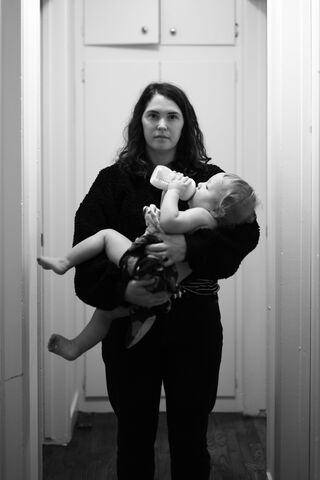Narcissism
Moving On From a Narcissistic Mother
How to meet your own needs for unconditional love and self-acceptance.
Posted February 24, 2021 Reviewed by Ekua Hagan
See our previous post, "Growing Up With Parental Narcissism," for insights on dealing with emotional flashbacks. In this post, we explore two additional areas to consider if you grew up with a narcissistic parent, particularly a narcissistic mother.

1. How to accept a mother’s limitations and allow ourselves to grieve
What does it take to fully realize that our mother fundamentally was incapable of unconditional love and empathy? If our own mother couldn’t love and accept us, who else can we count on? This is never an easy question to face. Isn’t she supposed to be the most natural, and reliable source of love, comfort, and understanding?
Children always think that what happened or didn’t happen to them is their fault.
As adults we often choose denial, closing ourselves to the bad, as well as the good; i.e., opportunities and possibilities.
As daughters, we are likely to question ourselves, asking, "What’s wrong with me?" Accepting the loss we feel is a tough and slow process.
Before we can grieve this deprivation, we must accept the reality of it.
Narcissism is a spectrum disorder. Mothers with fewer narcissistic traits are more likely to be open to recovery, but only if they are motivated. Unmotivated mothers with more severe narcissism are unlikely to change or seek treatment. Failure to accept this fact means our pain will continue.
The sooner you face this challenge, the sooner you will begin to take back control of your life and move forward.
Have you fully accepted your mother’s limitations? Ask yourself the following questions:

- Do you still hope that your mother will be different each time you talk to her?
- Do you continue to have unrealistic expectations of her?
- Have you accepted your mother for who she actually is?
- Do you continue to try to get your childhood needs met in relationships, instead of relying on yourself?
- Are you looking for a partner to replace your mother?
- Do you feel entitled as an adult to your unmet childhood needs?
When you successfully achieve acceptance, you realize that only you can meet your childhood needs and that you can't go back and get those unmet needs met.
You also can’t create the “Hallmark moment” of happily ever after.
2. Finding healthy ways to take responsibility for yourself and your own needs through grieving
Tears may come. Let them come. Make time and space for grieving to happen. Tears are healing. Tears are a signal to others that you are in distress and need support.
- Sit with acceptance of the discomfort.
- Get the support you believe you need.
- Manage the anxiety and depression if it comes, so you can work through it.
- Don't talk yourself out of it. Don’t let others do this either. They may be uncomfortable with your distress.
- Don't let others try to distract you from this stage in your healing process.
- Remind yourself that you deserve this time to heal.
- You may feel wounded and vulnerable.
- You may revert to messages from “your internal critic committee” labeling you for your feelings and vulnerability. They may suggest you just “pull yourself together. Remember it could be worse. You are lucky compared to others.”
- Some messaging may tell you to just “suck it up and get on with things.”
- At this stage, you may try to rationalize away the discomfort. You may tell yourself that you shouldn’t feel this way.
- You may ask yourself, “Was this real? Am I exaggerating how damaging things were? Why don’t other people react the same way to this type of treatment?”
- You may try to convince yourself that your feelings have more to do with something else that's currently happening in your life.
Maybe so. But if this is coming up in association with your current events, there's a strong probability that they are connected. Release it. Let it be.
- Sit with it and do your absolute best to develop comfort with whatever your mind, body, and inner wisdom tell you is needed.
- Remember these feelings may in part be from your inner child. Comfort him or her.
- Now as an adult what would you say to that child if you could have said it back then?
- Say it to that part of yourself now.
- And keep saying it until your feel yourself shift forward.
- Congratulations. You are on your way to greater inner peace.
References
Caroline Foster. 2019. Mothers: How to Handle a Narcissistic Parent and Recover from CPTSD; Self-published.


